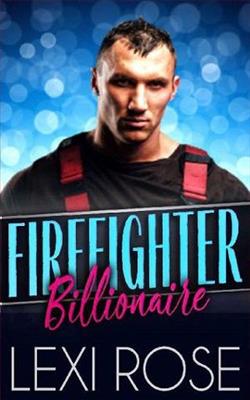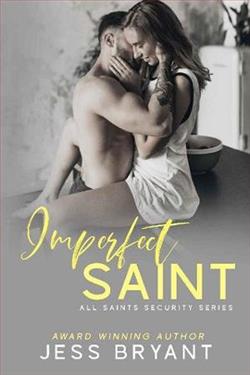Page 20 of Love Among the Shadows
***
By the time evening had arrived, Colonel Fitzwilliam was alone in his room, having spent much of the afternoon with Sir William Lucas, who had graciously provided the list of those who attended the Meryton assembly.
After hours of careful deliberation, aided by Sir William's observations, Colonel Forster's accounts, the parish death registers confirming that few had passed since Mr Darcy's arrival in Hertfordshire, and the contents of Sir Barnaby's note, Fitzwilliam had crossed off those who were either too old, too young, didn’t attend both balls, or too married to be of any suspicion. He reasoned that a family man would not likely abandon his family while they left a ball to commit murder—such an action would be far too conspicuous. With the list narrowing down, he could now focus his attention on the remaining suspects. With a more focused mind, he now lookedover the remaining names, his thoughts weighed heavily on the possibility that one among them might be the killer.
The first name that presented itself, and one that stood out most glaringly, was George Wickham. Fitzwilliam had never been entirely comfortable with him—his history with Darcy wasn’t exactly news to him, and it seemed altogether likely that Wickham’s longstanding bitterness had transformed into something far more sinister. He had spared no opportunity to speak ill of Darcy, and it seemed well within the realm of possibility that such animosity had now turned into a dark and twisted form of revenge. It was not beyond imagination that Wickham might now target Darcy, as if to exact some personal, malevolent retribution.
Next, Fitzwilliam’s thoughts turned to Lieutenant Harris, a man known to be a close companion of Wickham’s. It was no trifling matter that Harris had been present at both the Meryton and Netherfield balls—a fact which, when coupled with his intimate connection to Wickham, made him a highly plausible suspect. If, as Darcy had suggested, Wickham had indeed made an enemy of him, it seemed entirely possible that Harris had aligned himself with Wickham’s schemes. Attending both events, he might well have observed from the shadows, quietly gathering information, or perhaps even colluding in secret.
Then there was Mr Samuel Reed, the young apothecary assistant. Reed, too, had attended both balls, and his presence alone made him no less worthy of scrutiny. A single man, strong in build, he had arrived in Meryton only in September, much like Darcy. His recent arrival, combined with his attendance at both events, placed him on the list of potential suspects, though it was his unfamiliarity with the town that aroused particular interest. In a place so small, such newcomers could not be overlooked, especially when they were present at key moments.
The remaining suspects were few in number: Mr Geoffrey Penrose, a bachelor of few words but notorious for his unruly pack of dogs. A recent arrival to Meryton also, Penrose had earned a reputation for keeping largely to himself. His attendance at both balls, along with the proximity of his residence to that of Mr Harper, made him an individual of interest. Then there was Mr David Shaw, a quiet landowner whose habits were hardly remarkable, yet he too had been present at both events.
Also on the list was Officer Denny, a man who had attended only the Netherfield Ball. Despite this, his close association with Wickham was well known, and Denny’s loyalty to him made him a natural candidate for suspicion. His presence at one ball, combined with his friendship to a man who harboured such a deep-seated grudge against Darcy, could not be overlooked.
Lastly, there was Mr Richard Doughty, a man who had attended both the Meryton and Netherfield Balls. According to what Fitzwilliam had gleaned from Colonel Forster, Doughty had been a suspect in a murder some four years earlier, a murder involving a widower who was said to owe Doughty a considerable sum of money. The incident had sent ripples of unease through the local community, yet the authorities had never been able to secure proof of Doughty’s involvement. His shadowed past, coupled with his attendance at both balls, once again placed him under suspicion.
There were no women on the list of suspects—Fitzwilliam was certain of this. The brutality of the deaths—the struggle, the poison, the restraint—spoke unmistakably of a man’s strength and malice, not a woman’s delicate hand. With but seven names left, the question now remained: which of them could truly be guilty?
Fitzwilliam’s mind swirled with possibilities. Of the seven men, Wickham stood out as the most obvious suspect, but suspicion alone would not suffice to prove his guilt.
Twelve
The following morning, Fitzwilliam laid the list of suspects before Darcy, who stared at it with furrowed brows.
"Seven people?" Darcy protested, his voice edged with impatience. "This is hardly narrowing it down enough."
Fitzwilliam leaned back in his chair with an air of patience that Darcy, at that moment, found somewhat irksome. "Yes. Seven. That’s the best I could manage after eliminating those who are too old, too young, or too indisposed to carry out such a deed. And you must understand, Darcy, that we’re speaking of a county that boasts over eight hundred people. Narrowing it to seven is, at this stage, quite a feat."
Darcy glanced over the list again, his eyes narrowing, a brooding silence falling between them. "It’s Wickham," Darcy said, his voice quiet but firm. "I’m sure of it."
"I’m not one to argue with you," Fitzwilliam replied, his tone nonchalant but serious. "But we can’t act on mere suspicion. We need proof. We can’t simply walk up to him and demand answers. And besides," he added, lifting his eyes to meet Darcy’s, "should you be mistaken—"
"I’m not mistaken," Darcy interrupted, his tone sharper now.
Fitzwilliam raised a brow, as though Darcy’s certainty could not sway him. "Should you be mistaken, it could be any one of the other six people, or it could be someone else entirely. We must begin with this list, Darcy. If we find evidence, we will eliminate them one by one and proceed. But without proof, we’re just guessing."
Darcy leaned back in his chair, a hand rubbing his temple. "Other five people. Mr Samuel Reeds doesn’t belong on this list."
“Why do you say that?”
Darcy’s brow furrowed deeper, his frustration evident as he shook his head. “You don’t understand. He couldn’t have targeted me. I have only met the manpersonallyon two occasions. The first was when he came with Mr Jones, the apothecary, on Bingley’s request to investigate the cause of Thomas Granger’s death. The second was when he delivered my draught.”
Fitzwilliam regarded him, unblinking. "So?"
"So," Darcy replied, his tone firm, "he harbours no ill feelings towards me. He isn’t the killer. If he was, he would have poisoned the draught and ended me once and for all."
Fitzwilliam thought this over, his lips pressed in contemplation. Finally, he spoke. "Bingley and his sisters saw him come here?"
"Yes," Darcy answered, though his certainty seemed less sure now.
"Then," Fitzwilliam continued, "should he be the killer, he would not have poisoned you then. People saw who brought the draught, Darcy. They would have pointed him out."
Darcy sat back, taken aback by this simple, yet logical observation. His resolve faltered for a moment, but he shook his head again, more to himself than to Fitzwilliam. "He is not the killer."
"Relax, Darcy," Fitzwilliam said, placing a hand on his cousin's shoulder, trying to calm him. "Let me do as you asked me. I have condemned no one on that list yet. I have no proof against anyone there. But we will find the killer, and if it is not the apothecary’s assistant, then he will be free to go."
Darcy exhaled a long breath and slumped into a nearby chair, his face drawn with fatigue.















